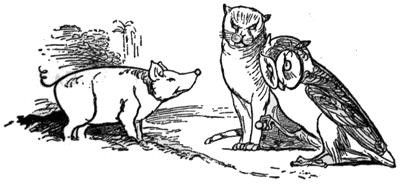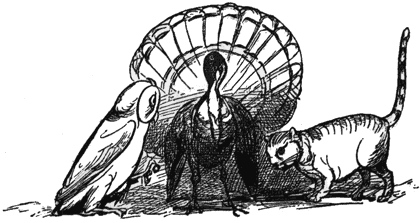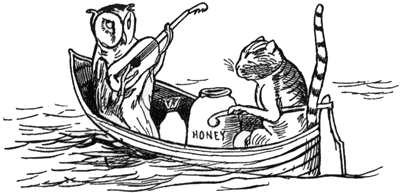The Owl and the Pussycat | |||||||
| II | |||||||
|
Pussy said to the Owl, 'You elegant fowl! How charmingly sweet you sing! O let us be married! too long we have tarried: But what shall we do for a ring?' They sailed away, for a year and a day, To the land where the Bong-tree grows And there in a wood a Piggy-wig stood With a ring at the end of his nose, His nose, His nose, With a ring at the end of his nose. |

| III |
|
'Dear pig, are you willing to sell for one shilling Your ring?' Said the Piggy, 'I will.' So they took it away, and were married next day By the Turkey who lives on the hill. They dined on mince, and slices of quince, Which they ate with a runcible spoon; And hand in hand, on the edge of the sand, They danced by the light of the moon, The moon, The moon, They danced by the light of the moon. |

